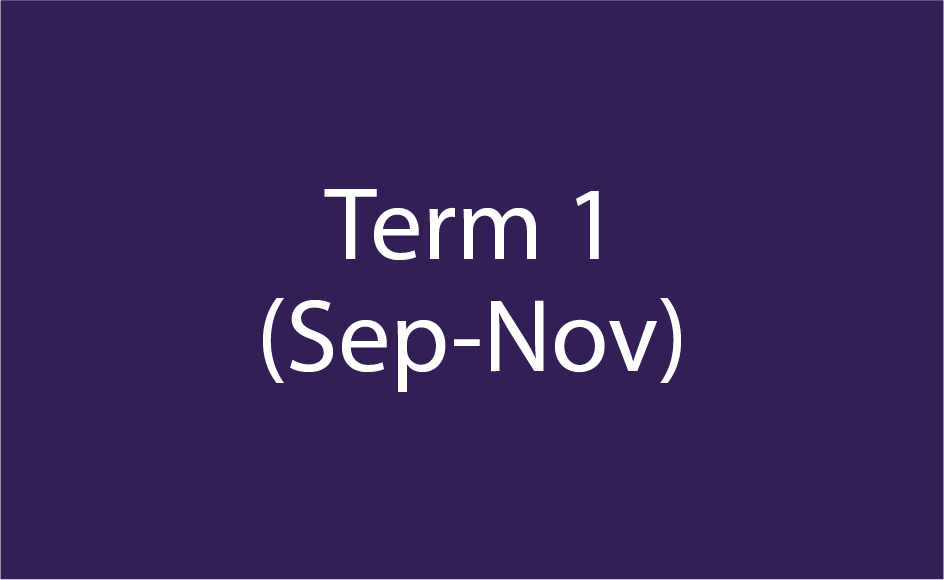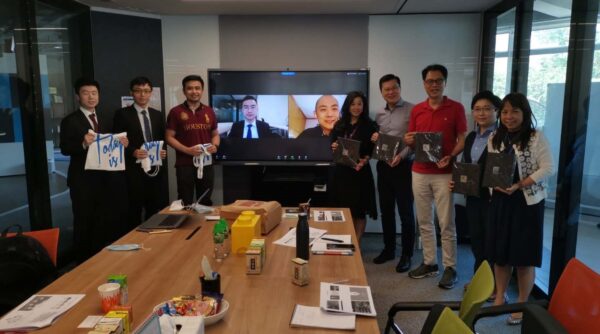CUHK MBA is the choice for leaders in Asia
- Fast track with Global Exposure: A 12-month MBA study course that equips you with Asian insight and expands your global perspective with business field trips. You can also gain fruitful experience by participating in exchange programmes or dual degree programmes with extended study period.
- Leading in the Digital Age: From fintech, AI, big data, digital marketing to digital transformation, develop your credentials as a future leader in the era of digital transformation
- Come to where East meets West: A range of exchange programmes, study tours and field trips blend international business learning with essential China business exposure
- Gain real-life exposure: Insights and hands-on experience all come with our Business Practicum projects and Entrepreneurship Training
- Work visa after graduation: Eligible non-local MBA graduates after completing full-time studies may apply for the ‘Immigration Arrangements for Non-local Graduates’ (IANG) visa to remain in Hong Kong for 24 months to seek and take up employment
Study Roadmap (12/16 months)
 |
 |
 |
 |
 |
 |
|
|
|
|
|
 |
|---|
|
 |
|
 |
|
 |
|
 |
|
 |
* The above curriculum, activities and study sequence are for reference only and subject to change.
Six Optional Concentrations
To tailor your MBA education for career acceleration and building expertise in a specific area, CUHK MBA will offer 6 optional concentrations starting from academic year 2022-23.
Students may select either General MBA or up to two concentration options to complete the units of elective courses. Those choosing the concentration option(s) are required to complete 9 units of elective courses for each chosen concentration option(s).
Business Analytics
To help students strengthen data-driven decision making and prepare them for driving innovation, Business Analytics concentration aims to enable students to make extensive use of data for identifying business insights, predicting market changes, and ultimately improving strategic decision making for organisations.
Featured course examples under this concentration:
- Application of AI in Finance
- Database and Big Data Management
- FinTech Analytics
- Management Consulting
- Mergers and Acquisitions
- Platform and Business Strategies
- Digital Marketing
Entrepreneurship and Innovation
In the modern business environment, entrepreneurial mindsets are critical whether students plan to work within an organisation or start their own business. CUHK MBA is the first MBA in Asia offering an Entrepreneurship and Innovation concentration, is determined to help you embrace intrapreneurship, innovation, and agility and design thinking. We strive to train you to be among the continent’s most visionary leaders.
Featured course examples under this concentration:
- Management Decision Making
- Managing Family Business
- Mergers and Acquisitions
- Venture Capital & Private Equity
- Business Negotiation
- Current Fintech Trends
- Managing Innovation & Technology
- New Venture Business Project
- Platform and Business Strategies
- Applied Methods in Technology New Venturing
- Creating Self-efficacy and Impact on Communication
- Funding Technology Commercialization and Applied Entrepreneurship
- Design Thinking for Business Innovation
- Strategic Value of Innovation Technology
Information and Technology Management
In the digital era, advancement in information technology is fundamental to success. Information and Technology Management concentration allows students to learn how to leverage cutting-edge IT skills, data and business analytics to develop effective business strategies.
Featured course examples under this concentration:
- Database and Big Data Management
- Digital Marketing
- Managing Innovation & Technology
- Platform and Business Strategies
- FinTech Analytics
- Application of AI in Finance
Finance
The world is experiencing digital transformation, and nowhere is this clearer than within finance. CUHK MBA offers in-demand technological and financial skills with a focus on analytical and critical thinking, all of which is essential to help you thrive in the competitive workplace and to be an innovative leader in the digital age.
Featured course examples under this concentration:
- Business Valuation and Analysis
- Current Fintech Trends
- Venture Capital & Private Equity
- New Venture Financing in China and Emerging Markets
- Corporate Fund-Raising Initiatives in the Chinese Equity Markets
- Mergers and Acquisitions
- Investment Analysis and Portfolio Management
- Money and Capital Markets
- FinTech Analytics
- Application of AI in Finance
- Sustainable Finance and Impact Investing
- Funding Technology Commercialization and Applied Entrepreneurship
China Business
China’s emergence into the world economy and the development of the Greater Bay Area offers a unique opportunity for prospective business leaders. Students in the China Business concentration can benefit from CUHK’s long-established role as a gateway between China and the rest of the world.
China Business concentration is designed to enable students to discover market opportunities in China by mastering China business knowledge and practical training about doing businesses in China.
Featured course examples under this concentration:
- China in Global Economy
- Corporate Fund-Raising Initiatives in the Chinese Equity Markets
- Managing Family Business
- New Venture Financing in China and Emerging Markets
- Digital Marketing
- Design Thinking for Business Innovation
- Sustainable Finance and Impact Investing
- Creating Self-efficacy and Impact on Communication
Marketing
To win in the age of the empowered consumer, Marketing concentration is primarily geared toward those students with an interest in managerial marketing and big data marketing by learning data-driven and strategic marketing knowledge.
Featured course examples under this concentration:
- Digital Marketing
- Behavioral Decision Making
- Database and Big Data Management
- Business Negotiation
- Creating Self-efficacy and Impact on Communication
- Design Thinking for Business Innovation
** The featured courses offered are subject to change in each term and academic year.
Business Practicum
You will have a chance to participate in one of the projects sponsored by diverse Hong Kong corporations and see how your business ideas, models, and hypotheses play out in the real world to solve a business challenge. A senior staff of the sponsoring company also joins the team as a supervisor to support the successful completion of the project. We offer a wide range of practicum topics like retail, transport, healthcare, hotel and tourism, and property.
This elective course is open for full-time and part-time Year 2 MBA students.

Field Studies
With business field study trips to Greater China, Asia, Europe and the United States, CUHK MBA students leave the school grounds for a short while to see beyond the business setting already familiar to them.
Expect to make new connections between your areas of study by experiencing them first-hand in a culturally different environment, and enhance your understanding through visits and interactions with local enterprises, lectures and seminars, business professionals, government officials and local alumni.
Exchange Programme
With distinguished universities worldwide as exchange partnering schools, students are provided with a truly global perspective and benefit from a significant expansion of their global networks and far greater opportunities to demonstrate their ability to be a global leader.
United States / Canada
- University of Michigan
- University of British Columbia
- The University of Chicago
- The University of Toronto
Europe
- Bocconi University
- HEC Paris
- London Business School
- Warwick Business School
- IE Business School
Asia
- CEIBS
- National University of Singapore, NUS Business School
- Seoul National University
- Peking University
- Waseda University
Full Course List
Course offerings are subject to change. All MBA courses will be taught in English, with the exception of elective courses of a unique nature in which teaching in Chinese is preferable.
This course is designed to hone students’ entrepreneurial skills. To that end, each student will work in a group to develop a business plan and to devise a means for acquiring capital for a new venture. The instructors will lecture on various aspects of planning and financing start-ups, and guest speakers – entrepreneurs, venture capitalists and incubator sponsors – will describe their experience of dealing with start-ups. Students will succeed in this course only if they take the initiative to produce viable plans. The instructors are coaches and facilitators to help course participants. Students, together with the instructors, will critically assess each of the business plans.
Efficient and effective operations enable firms to gain a competitive advantage by creating cost leadership, quality superiority, and capability of meeting customer demands quickly. This course will introduce concepts, issues, tools, and techniques in designing, managing and improving business processes. Topics encompass: operations strategy, process analysis, quality management, and supply chain management, etc. Cases and business best practices will be discussed in the course to demonstrate that companies can use (and have used) the principles from this course to significantly enhance their competitiveness.
Success in business needs strategies. The advances of information technology have given business strategies a new dimension: building computer-mediated networks to facilitate transactions over e-platforms. The examples include Amazon, Google, Spotify, iTunes, Alibaba, Uber, Airbnb, and many other B2B, B2C, and C2C platforms. The e-platform business has network effect following demand-side scale economies that sees the value of a product from the willingness-to-pay of customers. This creates new perspectives of business strategies on pricing, platform products, envelopment attacks, winner-takes-all effect, and cannibalization. This course discusses how to run a successful business with e-platforms.
This course is intended to equip students with the basic statistical tools required for the quantitative analysis of business problems. Topics include basic sampling and analysis of data, probability distribution functions, estimation of parameters and hypothesis testing, goodness-of-fit tests, analysis of variance, simple regression, correlation, and basic non-parametric statistical methods.
Encountering an increasingly competitive business environment, how managers interpreting and responding to it is crucial to the success of a business. This course is designed to provide students with a concept of competition and an understanding of the role of managers in the process of strategy formulation, implementation, and evaluation. Major topics include organizational mission, analysis of business environment, strategic planning, formulation and implementation of strategies at both business and corporate level, strategic change, and strategic evaluation and control. Cases, in-depth readings, and contemporary issues will be discussed in the class.
Course details will be updated soon.
The course will outline the mechanisms of venture capital (VC) investment and the financing of startups and early growth firms. As VC is a subset of private equity, the course will discuss the management, legal and marketing issues of private equity in general. Topics include raising and structuring private equity funds, the limited partnership, and fund strategies. The course will consider the investment decision of institutional investors in private equity and how funds are structured to meet their needs. It will discuss post-subscription private equity fund management – deal screening, evaluation, negotiation, disbursement, investee management, valuation and exit – and will consider specifically the perspective of the VC investee company – alternative sources of financing, how to approach a VC to maximize chances of success, and governance issues in VC financed firms. The course may also delve into public versus private equity buyouts, valuation of buyouts and corporate restructuring under private equity.
Running a business requires large up-front capital, this is particularly true for the fast-growing businesses, such as start-ups in hi-tech and bio-tech. Though those start-ups have great potential to grow and develop into highly profitable venture, they are normally unqualified for debt financing backed by assets or cashflows. However, venture capital (“VC”) has characteristics of high-risk and high-return, it plays more and more important roles in funding innovations and entrepreneurs with good ideas. Indeed, lots of giant companies today were funded by VCs in their early stages, such as Facebook, Google, Alibaba, JD, etc. Entrepreneurs find it’s critical to equip with the knowledge of VCs.
The course is designed principally to the students who expect to embark on an entrepreneurial career of managerial roles with a venture-backed start-up company and needs insight into the structure, practices and operations of venture capitalists, or those wish to pursue a career in venture capital will find that the course provides insight into deal sourcing, assessment, valuation and structure, governance and exiting.
Application Deadlines for the 2025 Intake
- 31 October 2024 (1st round)
- 15 December 2024 (2nd round)
- 31 January 2025 (3rd round)
- 15 March 2025 (4th round)
- 30 April 2025 (5th round)
*Applications submitted after 30 April 2025 will be processed on a rolling basis until all places have been filled.
Join over 8,000 applicants already!
I Want to Apply Now >>I Want My Free CUHK MBA Brochure >>I Want to Book a Consultation Today >>

